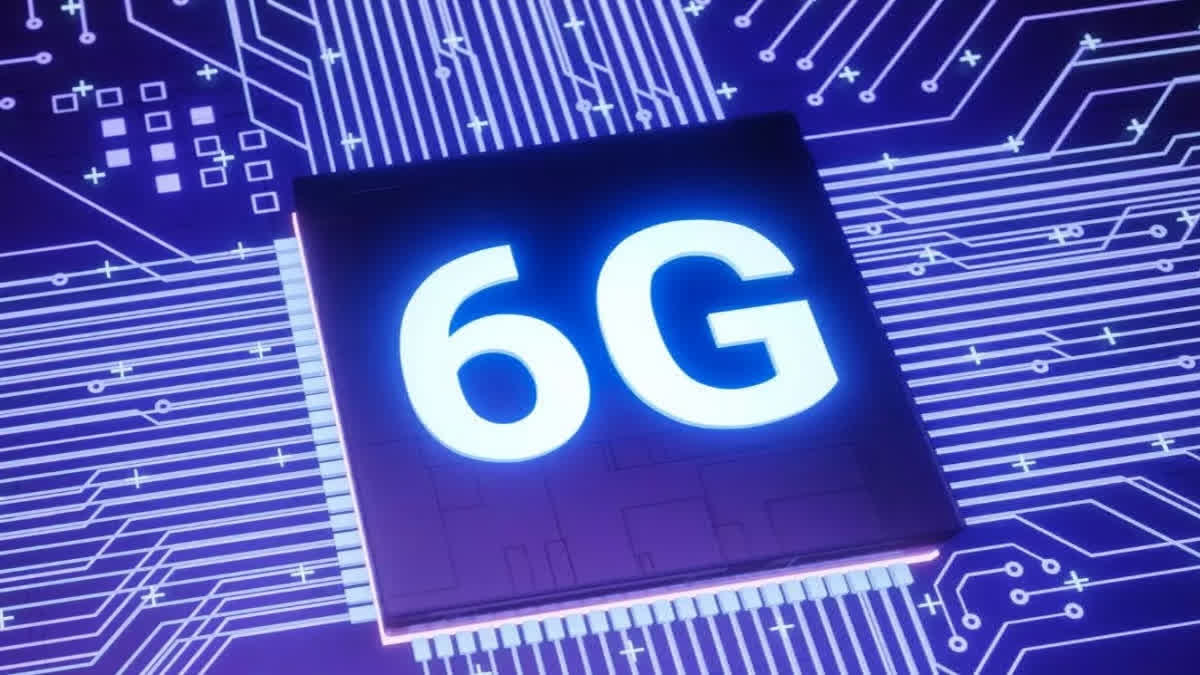New Delhi: After achieving the feat of the world’s fastest 5G rollout, India looks set for a big leap in the global telecom sector eyeing strides towards creating 6G or sixth-generation communication technology.
Reliance Jio and Bharti Airtel, the two biggest telcos, which were allocated spectrum in 2022, earlier said they hit minimum 5G rollout targets for year one across 22 service areas in the country.
Despite being at a concept stage, 6G is creating waves due to its promise of unified human-machine and machine-machine connectivity and offers a glimpse of the future. The next generation 6G, which will be built upon 5G technology, is likely to provide more reliable, ultra-low latency and affordable solutions with speeds almost 100 times faster than 5G.
Prime Minister Narendra Modi inaugurated the new International Telecommunication Union (ITU) Area Office & Innovation Centre in March 2023 at an event in New Delhi's Vigyan Bhawan. He also unveiled the Bharat 6G Vision Document and launched the 6G R&D Test Bed in the country.
The Bharat 6G Vision Document envisages India to be a front-line contributor in design, development and deployment of 6G technology by 2030. Stressing the fast pace of technological innovation in the country, PM Modi said, “India is discussing 6G just six months after the world’s fastest 5G rollout in the country.”
India has played a pivotal role in formulating the ITU’s 6G Vision Framework along with the collaborative efforts of member countries of the United Nations. India’s strive for Telecommunications in prioritising 6G standardisation, successfully resulted in adoption of Ubiquitous Connectivity, Ubiquitous Intelligence and Sustainability as key elements of 6G Technology and also enhanced India’s position in the international telecommunication space.
The 6G Technology has been named ‘IMT 2030’ by ITU, the specialised agency for Information and Communication Technologies of the United Nations. The recommendation of ITU for 6G Framework, approved on June 22, 2023, will serve as a foundation document in 6G research and development (R&D) and will pave the way for development of 6G Technology worldwide.
Bharat 6G Vision is based on the principles of affordability, sustainability and ubiquity. It aims to enable India to take its rightful place in the world as a leading supplier of advanced telecom technologies and solutions that are affordable and contribute to the global good.India’s Telecommunication Engineering Centre (TEC) has spearheaded the country’s standardisation work on this 6G Framework.
The inclusive approach adopted by TEC has resulted in wide stakeholder participation in the National Study Group (NSG) with the involvement of major industries, startups, and academia and R&D organisations.The TEC-led NSG has been working on this framework for the last few years, and has been advocating for India-specific requirements at the international forum.In the past, India, through NSG, had also contributed to the development of 5G Technology, a key outcome of which was adoption of Low Mobility Large Cell (LMLC) by ITU as a 5G use case.
The Indian telecom sector’s success story is reflected in the fact that broadband connectivity had 60 million users in the country before 2014 but that number has gone up to over 800 million today.
The number of Internet connections in India is more than 85 crore compared with 25 crore before 2014. For the achievement of Mission 6G, India must focus on aligning its research on technologies in the coming decade that would bolster and propel the implementation of 6G in the country in a highly customised manner, according to the Bharat 6G Vision.
Read More



